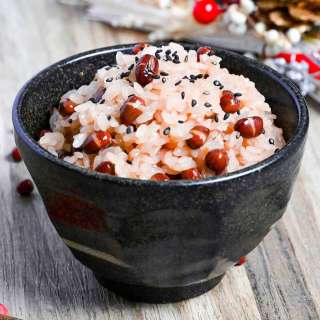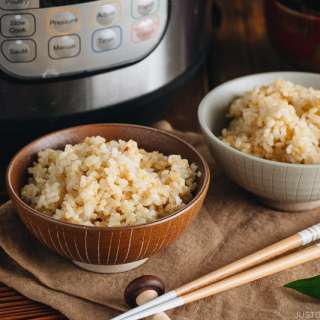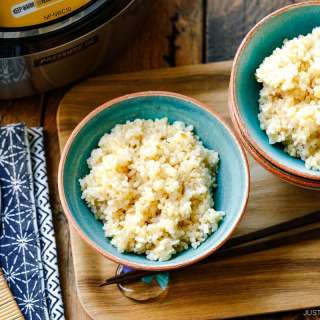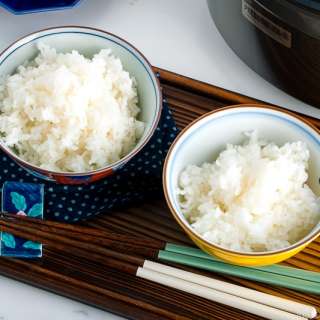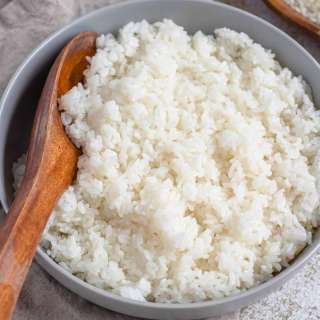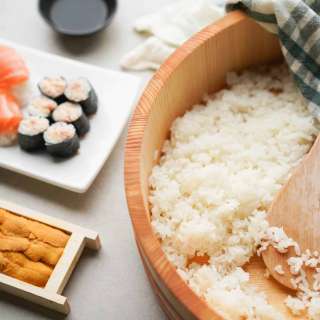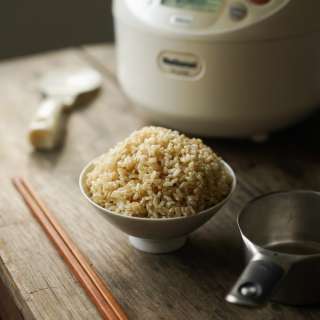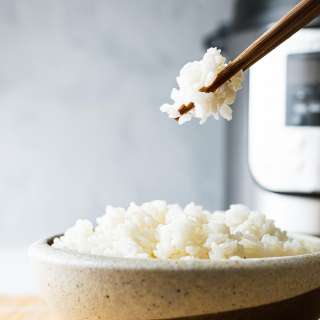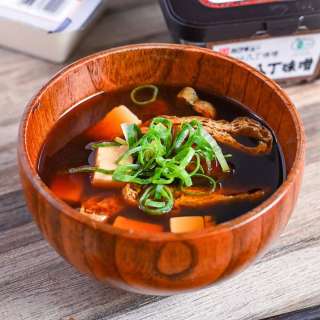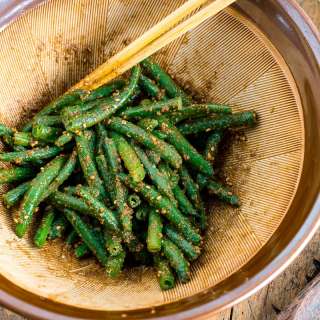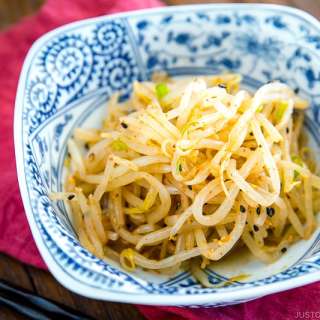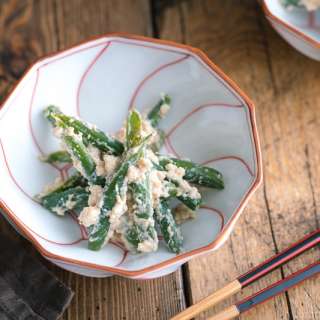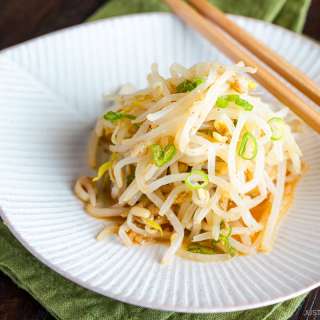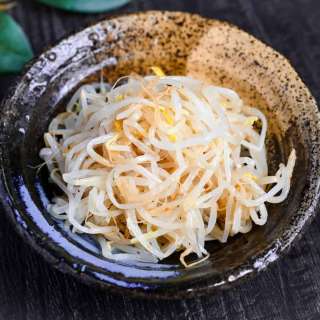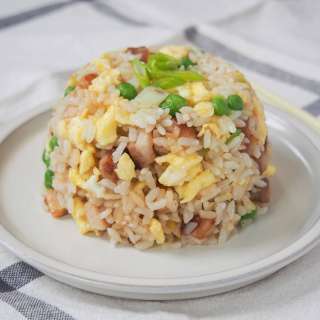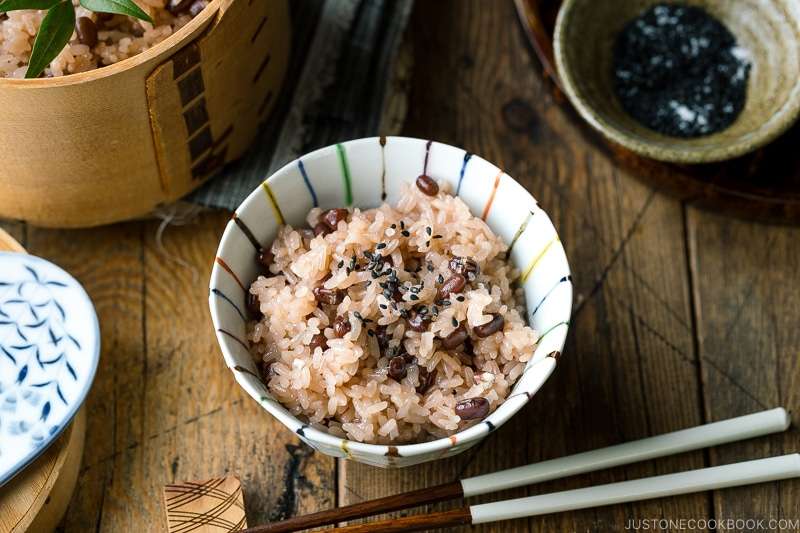
Sekihan (Red Bean Rice)
User Reviews
4.8
129 reviews
Excellent

Sekihan (Red Bean Rice)
Report
Sekihan literary means “red rice” in Japanese because the rice is red from cooking with azuki beans. It’s a traditional dish served during the New Year, births of babies, birthdays, festivals, weddings, or any kind of celebration.
Share:
Ingredients
- ⅓ cup azuki beans (½ rice cooker cup, ½合)
- 1½ cups water (for cooking beans #1)
- 3½ cups water (for cooking beans #2)
- 2¼ cups sweet rice/glutinous rice (mochigome) (3 rice cooker cups, 3合, 540 ml)
- ½ tsp Diamond Crystal kosher salt (for cooking the rice)
For Serving
- 1 Tbsp toasted black sesame seeds (or use gomashio, which is the combination of black sesame seeds and salt)
- ½ tsp Diamond Crystal kosher salt
Instructions
- Gather all the ingredients.
To Cook Azuki Beans
- Rinse ⅓ cup azuki beans in the strainer under cold running water and drain well.
- Put the azuki beans in a large pot (with a tight-fitting lid) with 1½ cups water.
- Bring it to a boil over medium heat. Once boiling, turn off the heat and drain the beans over the strainer.
- Put the beans back in the pot and add 3½ cups water. Bring it to a boil.
- Once it‘s boiling, turn down the heat to low/simmer. Cover and cook for 25–30 minutes. Note: If your azuki beans are old, no matter how long you cook them, they won‘t become tender. So, make sure the beans are fresh. The beans will continue to cook with the glutinous rice, so they should be tender but don‘t have to be 100% cooked at this stage. I personally prefer the beans to have some texture instead of being mushy. Please adjust the cooking time for the beans accordingly.
- Check the doneness of the beans by mashing one bean between your two fingers. As I prefer the beans to have some texture, when I test the bean, the texture should still be somewhat firm, not completely soft. Remove from the heat and let cool to room temperature, roughly 1 hour. The beans will continue to cook with the remaining heat.
To Measure the Rice Cooking Liquid
- Once the azuki beans and azuki-cooking liquid come to room temperature, separate them. You will use the azuki-cooking liquid to cook the rice. You must have 540 ml cooking liquid. If you don‘t have enough, add water so you‘ll have exact 540 ml.
To Rinse the Rice
- In a large bowl, place 2¼ cups sweet rice/glutinous rice (mochigome). Add water to submerge it and quickly discard the water.
- Add water and gently rinse the rice 3 to 4 more times until the water is clear. Unlike regular white rice, sweet rice breaks easily, so be gentle when you rinse.
- For one last time, add water to the bowl and drain the rice into the strainer. Drain and shake off the water well.
To Cook the Sekihan in a Rice Cooker
- Add the drained rice and 540 ml azuki-cooking liquid to the rice cooker bowl. The liquid should be at the 3-cup line for Sweet Rice. If your rice cooker does not have Sweet Rice mode, your liquid should be less than the 3-cup line for White Rice.
- Add ½ tsp Diamond Crystal kosher salt and mix well together.
- Add the beans on top and evenly distribute but try not to mix with rice. Rice cooks evenly when it‘s not mixed with other ingredients.
- Press start to cook. Once it‘s done cooking, keep the lid closed for an additional 10–15 minutes.
To Cook the Sekihan on the Stovetop
- Add the drained rice and 540 ml azuki-cooking liquid to the pot or donabe.
- Add ½ tsp Diamond Crystal kosher salt and mix well together.
- Add the beans on top and evenly distribute but try not to mix with rice. Rice cooks evenly when it‘s not mixed with other ingredients.
- Cover the lid and start cooking on medium-high heat until boiling, roughly 8–10 minutes.
- Once boiling, reduce the heat to low/simmer and cook for 10–12 minutes. Remove from the heat (so the bottom doesn‘t get burnt) and let it steam for an additional 20 minutes.
To Serve
- Mix 1 Tbsp toasted black sesame seeds and ½ tsp Diamond Crystal kosher salt. This is called gomashio (ごま塩).
- Fluff the rice gently. Insert the rice scooper perpendicularly, lifting up the rice from the bottom (see the next step).
- Then, break it up with the rice scooper perpendicularly, as if you‘re cutting it. Repeat the same process until all the rice at the bottom of the pot is fluffed. Serve to individual rice bowls and sprinkle gomashio on top. Enjoy!
To Store
- You can keep the leftovers in an airtight container and store in the refrigerator for up to 2 days or in the freezer for a month.
Nutrition Information
Show Details
Calories
356kcal
(18%)
Carbohydrates
76g
(25%)
Protein
8g
(16%)
Fat
1g
(2%)
Saturated Fat
1g
(5%)
Polyunsaturated Fat
1g
Monounsaturated Fat
1g
Sodium
177mg
(7%)
Potassium
220mg
(6%)
Fiber
4g
(16%)
Sugar
1g
(2%)
Vitamin A
2IU
(0%)
Calcium
66mg
(7%)
Iron
2mg
(11%)
Nutrition Facts
Serving: 5Serving
Amount Per Serving
Calories 356 kcal
% Daily Value*
| Calories | 356kcal | 18% |
| Carbohydrates | 76g | 25% |
| Protein | 8g | 16% |
| Fat | 1g | 2% |
| Saturated Fat | 1g | 5% |
| Polyunsaturated Fat | 1g | 6% |
| Monounsaturated Fat | 1g | 5% |
| Sodium | 177mg | 7% |
| Potassium | 220mg | 5% |
| Fiber | 4g | 16% |
| Sugar | 1g | 2% |
| Vitamin A | 2IU | 0% |
| Calcium | 66mg | 7% |
| Iron | 2mg | 11% |
* Percent Daily Values are based on a 2,000 calorie diet.
Genuine Reviews
User Reviews
Overall Rating
4.8
129 reviews
Excellent
Other Recipes
You'll Also Love
How To Cook Brown Rice In A Rice Cooker (Perfect & Fluffly Results!)
Asian, Chinese, Filipino, Japanese, Vietnamese
5.0
(21 reviews)
